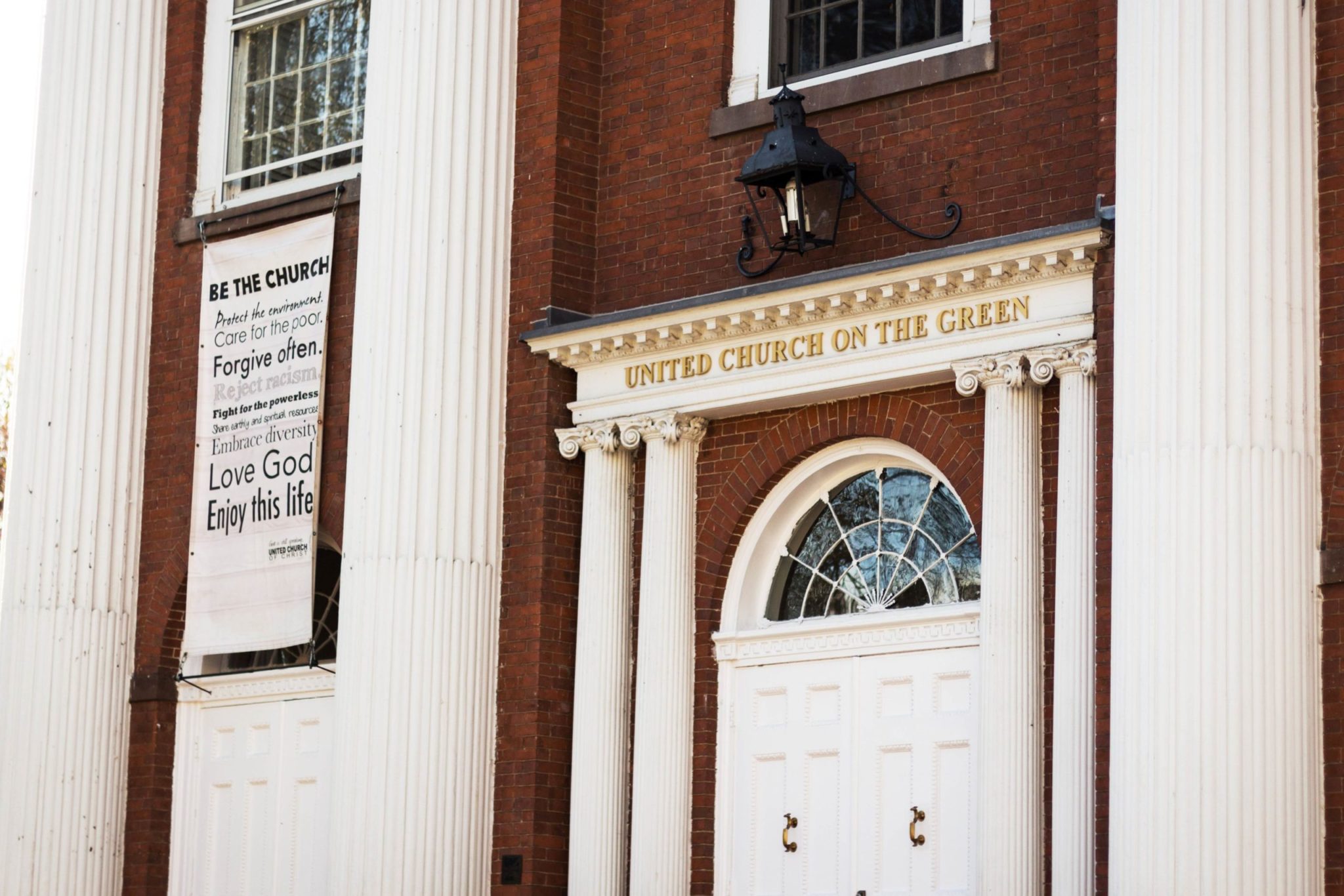
Daniel Zhao
From Saint Thomas More to the Slifka Center, Yale’s religious centers have reimagined a host of programming to comply with the University’s public health guidelines and meet the needs of students who are spread across the world this semester.
After going remote in the spring, Yale faith leaders have had time to refine their approaches to pandemic-era spiritual life. The University has closed physical prayer spaces on campus for the fall and restricted in-person gatherings. Similar to the latter half of the spring semester, religious programs will take place almost entirely online, with a few potential socially distanced exceptions. Religious leaders are working to prepare engaging online programming that recreates the traditions of in-person meetings and takes advantage of online technologies to reach new audiences.
“Religious and spiritual groups offer a way for students to be in [a] community during this time of self-isolation and discuss how to find meaning in the midst of this uncertainty,” wrote Father Ryan Lerner, chaplain of Saint Thomas More, in an email to the News. “I think students — and perhaps all of us — are looking for ways to connect with each other and with a higher power during these turbulent times. We want to make sure that we’re present to that reality, listening closely and responding to that need.”
Saint Thomas More’s usual programs — including prayer and study groups, liturgies, social activities and the weekly Mass — will also take place online.
Though Father Lerner said the transition to virtual programming has been largely successful, he stated that leading a communal service like Mass over Zoom is challenging. Current regulations also prohibit the traditional Eucharist — the taking of bread and wine that is part of many Catholic services.
Jessie Cheung ’24, a Yale first year and Christian, voiced similar concerns regarding the importance of physical group presence.
“You can’t have worship, which is a big part of my faith,” Cheung said. “Everyone singing together — you really can’t do that over Zoom. There’s a limited instrument capability, the sound quality isn’t great. It’s one of the things that can’t be adapted.”
Some churches in the New Haven area are holding in-person services, but these institutions are not affiliated with Yale.
Several of Yale’s religious leaders told the News that feel that their teachings are particularly relevant during the pandemic. According to Rev. Sumi Kim, coordinator of Buddhist Life, Buddhism’s focus on a healthy approach to the “change and impermanence” in our lives is an especially salient lesson in these turbulent times.
The Yale Buddhist Sangha is offering a weekly program of meditation workshops, discussions, and lectures — all taking place over Zoom. Rev. Kim told the News that she has been surprised by how smoothly meditation workshops have translated to this online format.
“It’s easy to sit in front of your computer and just listen to the audio, then re-engage sight when it’s time to do that.”
Still, some religious services rely heavily on communal music and meals, such as the Jewish Shabbat. Most religious services, discussion groups and fellowships run by the Slifka Center for Jewish Life will take place online. But for the upcoming new year celebration, Rosh Hashanah, the Center is developing a safe way to blow the shofar — a loud horn that typically sounds off the new year — around New Haven.
“I participated in part of the Egalitarian Shabbat before my phone died,” said Edward Kuperman ’24. He watched the virtual service with a friend in the courtyard of his residential college. “It wasn’t a replacement for an in-person Shabbat, but a pretty good attempt at a substitute. People were introducing themselves and sharing.”
Rabbi Isaama Goldstein-Stoll, senior Jewish educator at the Slifka Center, told the News that attendance at virtual Shabbat services has been strong so far. She said members of the Jewish community are “grateful to stay connected … even without physically being on campus”.
To some religious groups, these circumstances have created new opportunities. Imam Omer Bajwa, director of Muslim Life, said that virtual programming allows for increased participation. He is offering weekly halaqas — study circles — on Monday nights and has replaced the usual in-person Jummah prayers with “Friday reflections” — an entirely new program for conversation and bonding.
“We have non-students and non-Yale members who are joining us, people from across the country and across the world,” Imam Bajwa said. “Typically it would just be myself as the Imam. But now, with the accessibility of Zoom, we can also have panel discussions, invite scholars and community members and activists onto the program to offer a reflection or be in conversation.”
Despite the limitations on in-person services, religious leaders and students are optimistic about the ways in which faith can continue to offer belonging and solace during this time.
John Daoud ’21, senior and peer liaison with the Chaplain’s Office, told the News he is hopeful that the religious community on campus can continue to offer productive spaces for students.
“My hope is that the Chaplain’s Office, as it always has, will serve as a place of radical love, radical welcome for every member of the Yale community,” Daoud said.
Bingham Hall, which houses the Chaplain’s Office, is being used as isolation housing for students who test positive for the coronavirus. The Chaplain’s Office will remain closed for this semester.
Sylvan Lebrun | sylvan.lebrun@yale.edu







